#prince dios
Text
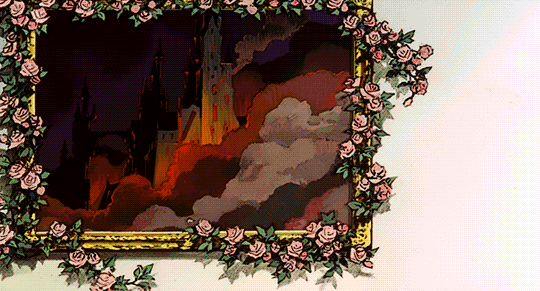

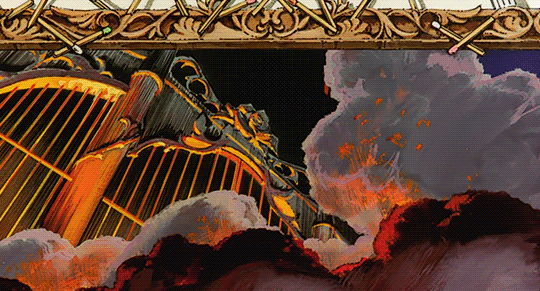


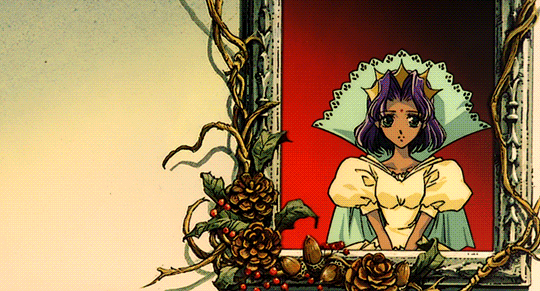
ADOLESCENCE OF UTENA (1999) dir. KUNIHIKO IKUHARA
#f#a#adolescence of utena#shojo kakumei utena#revolutionary girl utena#anthy himemiya#prince dios#kunihiko ikuhara
1K notes
·
View notes
Photo
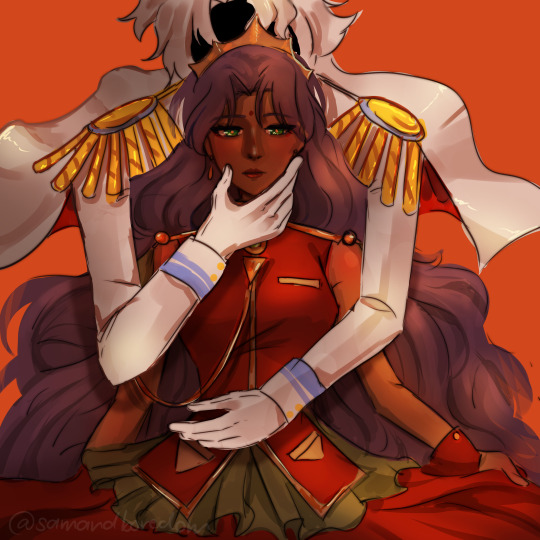
|| “The man who will save us is our destroyer.”
((Initially was just Anthy fanart, but I felt very angsty today (also related to having an assailant) so I added Dios. Does this count as vent art? Also may post the Anthy only version because I love how she turned out!))
#revolutionary girl utena#himemiya anthy#anthy himemiya#akio ohtori#ohtori akio#prince dios#RGU#rgu anthy#rgu dios#rgu akio#shoujo kakumei utena#sku#im actually really fond of my old art syle#i love the messy look of this#vent art#kind of
1K notes
·
View notes
Text


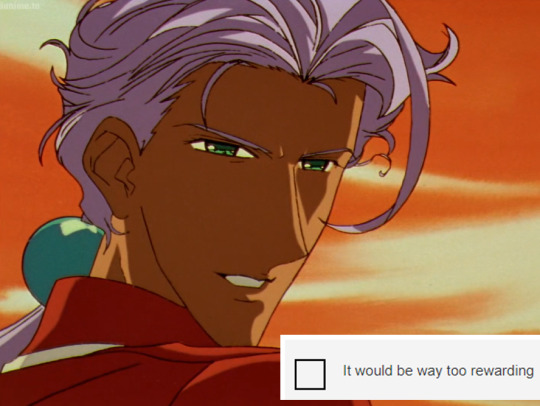
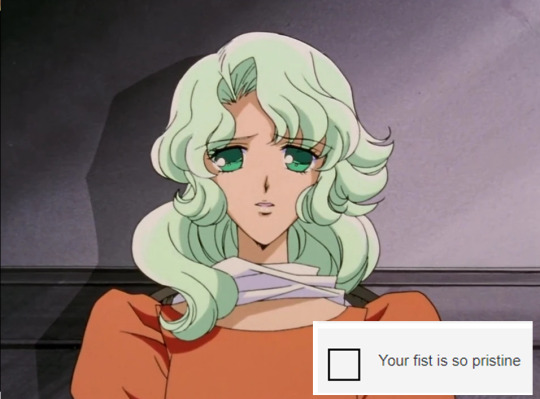




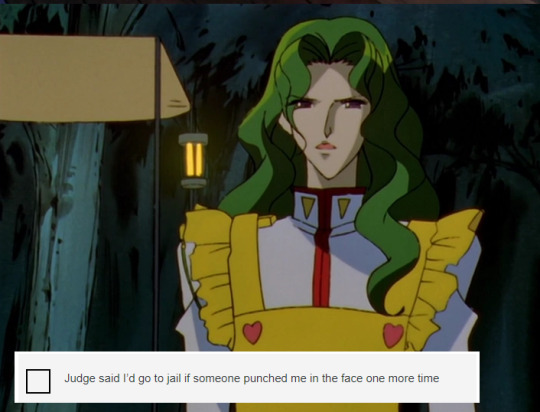

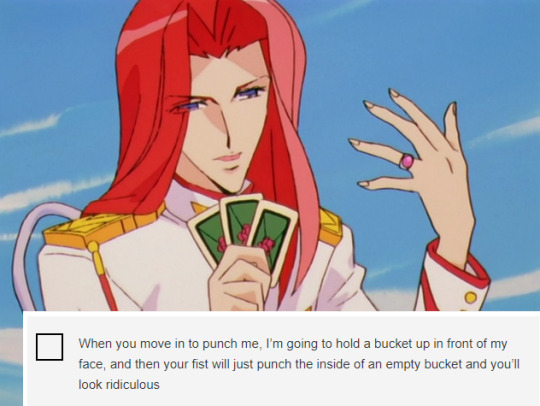
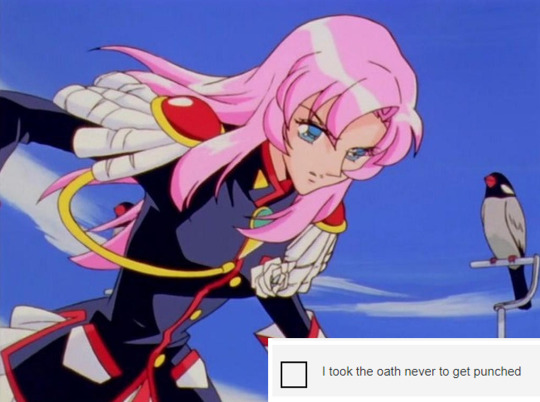
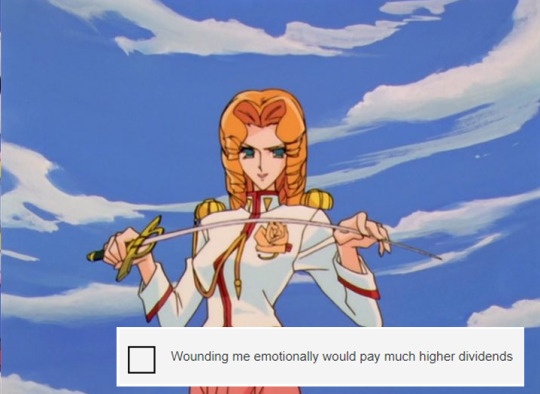
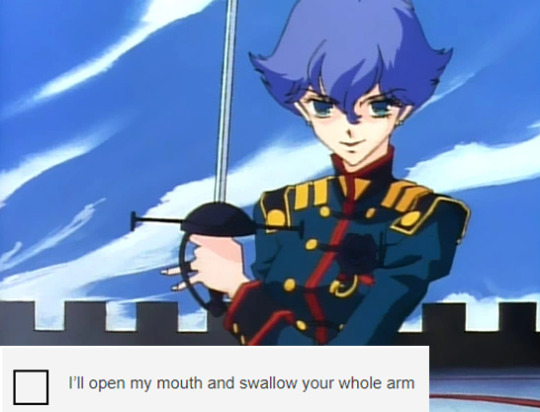


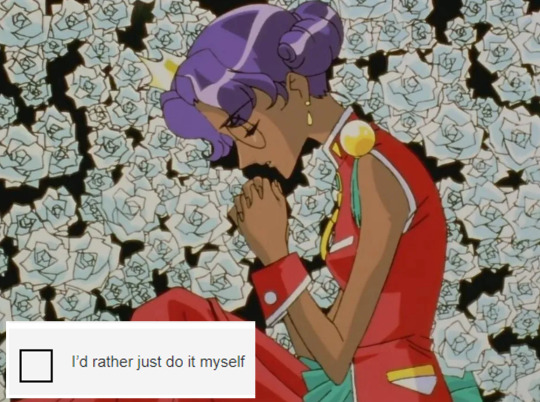
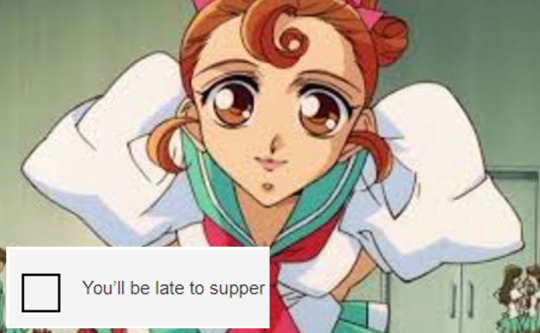
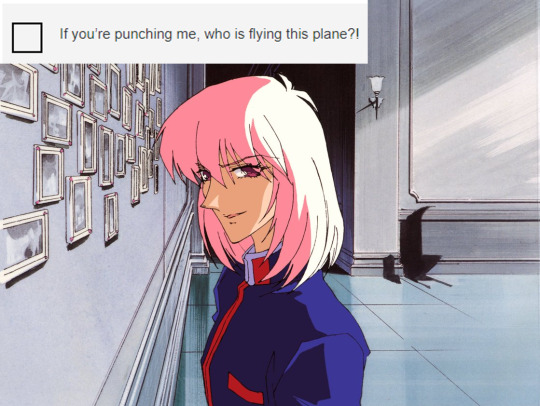
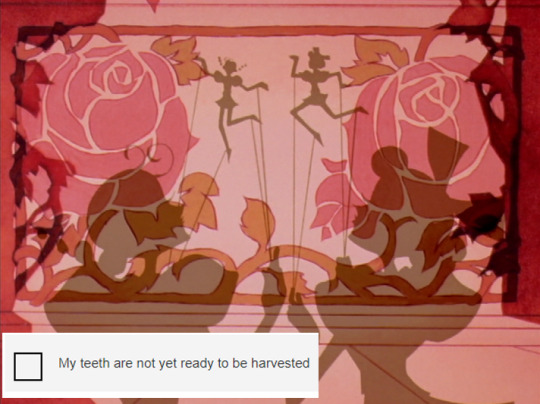
#revolutionary girl utena#shoujo kakumei utena#shojo kakumei utena#rgu#sku#utena#Nanami Kiryuu#akio ohtori#kanae ohtori#miki kaoru#mitsuru tsuwabuki#keiko sonoda#ruka tsuchiya#kyouichi saionji#prince dios#touga kiryuu#utena tenjou#juri arisugawa#kozue kaoru#shiori takatsuki#chu-chu#chuchu#anthy himemiya#wakaba shinohara#souji mikage#shadow girls#the shadow girls
784 notes
·
View notes
Text
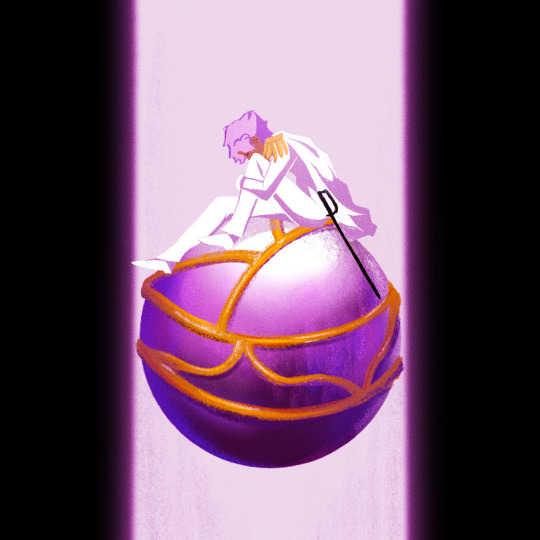
bury me in your memory
#my art#ignore the tangent pls thank u#rgu#revolutionary girl utena#Utena#shoujo kakumei utena#prince dios#akio ohtori#fanart#anime#artists on tumblr#utenaposting
228 notes
·
View notes
Text
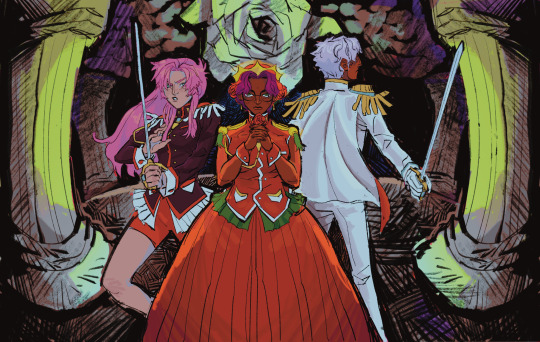
a bride and her princes
(a rose and her thorns)
#revolutionary girl utena#shoujo kakumei utena#sku#rgu#anthy himemiya#utena tenjou#prince dios#the song 74 by hana itoki gave me a lot of anthy vibes#i listened to it on repeat while making this
2K notes
·
View notes
Text

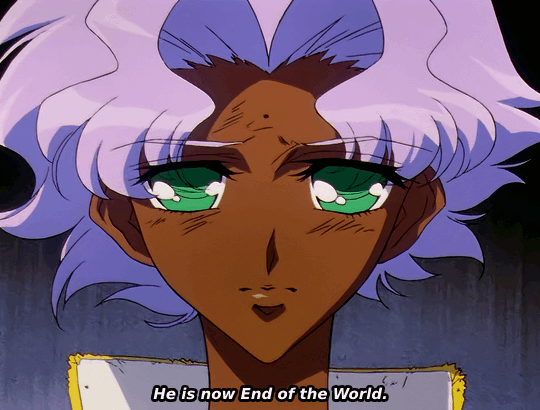
REVOLUTIONARY GIRL UTENA 🌹 EP 34: THE ROSE CREST
#utena#revolutionary girl utena#shoujo kakumei utena#rgu#sku#utenaedit#animegifs#anime#prince dios#oldanimeedit#ellisgifs#“The Gang is Forcibly Disillusioned by the Realisation That Their Childhood Princes Were Never Real In the First Place”
159 notes
·
View notes
Text
i love the part in adolescence of utena when prince dios is referred to as the lord of the flies because YEA it means he's been dead this whole time YEA it foreshadows him later being named after the devil but ALSO he's now isolated a bunch of emotionally repressed kids in a place with very little adult surveillance and is making them fight each other to the death for control over their lives and i didn't read lord of the flies three times in a row not to zero in on that
#another far fetched analysis i should make a tag for this#i had to read this book for school on three separate occasions#revolutionary girl utena analysis#revolutionary girl utena#rgu#shoujo kakumei utena#akio ohtori#prince dios#adolescence of utena#sku#actually?? i change my mind this isn't far fetched at all im owning up to it
167 notes
·
View notes
Text
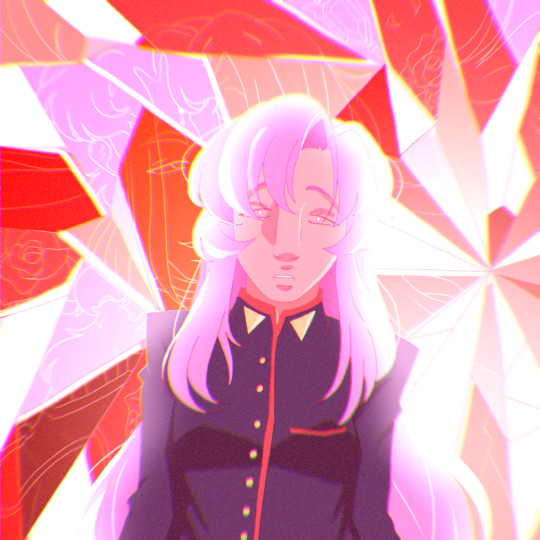
didn't your prince look just like me?
103 notes
·
View notes
Text

my brothers'
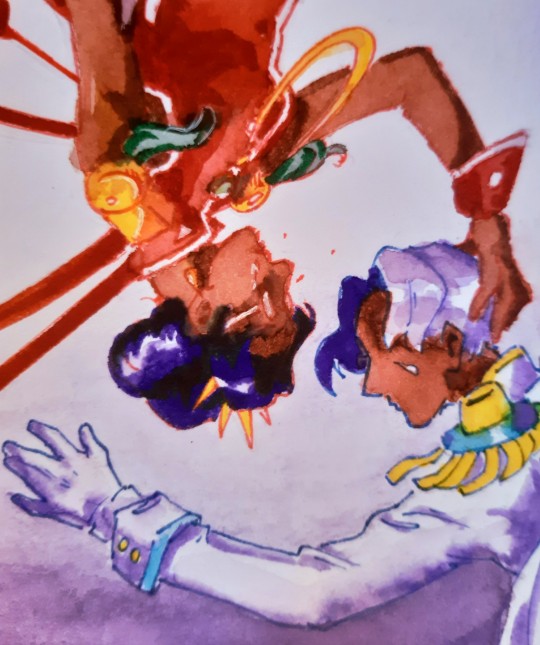
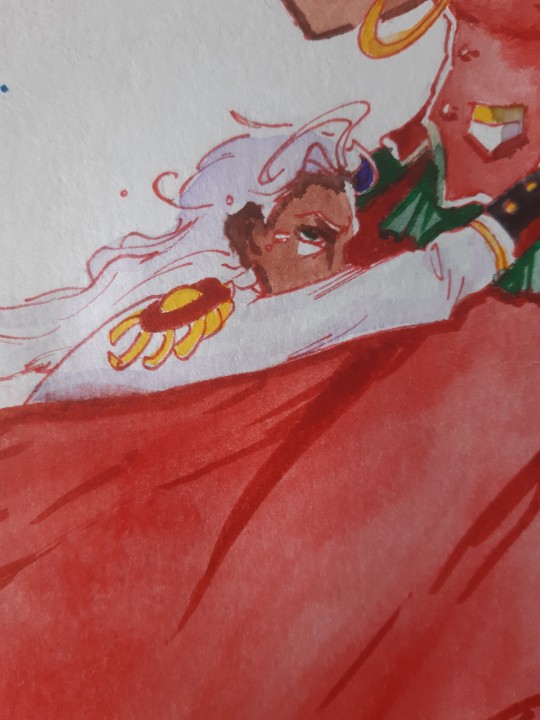
keeper.
#rgu#revolutionary girl utena#anthy himemiya#akio ohtori#prince dios#yes i'm posting akio because it's clown month#traditional art#watercolor#watercolor markers#sketchbook#adolescence of utena
279 notes
·
View notes
Text

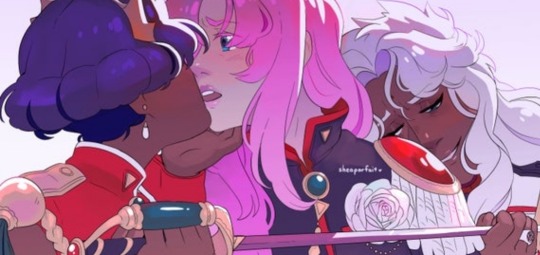

- shea-parfait
#revolutionary girl utena#rgu#rgu merch#shojo kakumei utena#utena merch#sku#shoujo kakumei utena#utena tenjou#anthy himemiya#utena x anthy#prince dios#akio ohtori#prints
116 notes
·
View notes
Text
The way tsuwabuki ends up physically damaged and exhausted by serving nanami is a form of acknowledgement of how trying to become a prince damages the person in question because they are trying to reach an impossible standard. It's the same as when prince dios tried to save every girl from the world and anthy had to stop him because he was going to die if he continued. But, at the same time, the ones who try to be princes are taking the agency of others when deciding how and from what they have to be saved and tsuwabuki is one of the most obvious cases because he literally creates situations where nanami is in danger to rescue her.
So I think the series shows both the aspect of princehood that is more recognized by society (chivalry, nobility, selflessness) and the actual dark consequences and implications of that (taking the agency of others, damaging yourself in the process and the need of others to being in danger to fulfil your role/feel complete). The fact that there are people, or to be more exact princesses, who need being helped and saved constantly implies that the princesses are oppressed and, instead of change this, princes put a band aid to the problem. I think this relates to what @os-eclipses-tamen-son-yuri wrote about when boys become misogynistic men. When the boys grow up and accept the role of princes, they end up upholding the misogynistic system that creates gender oppression, even if that's not their intention because that's the real purpose of that role.
The way I see it is that RGU goes beyond critiquing the idea of toxic masculinity and implies that the problem is the binary masculine/feminine itself and the roles it puts on people.
#revolutionary girl utena#shoujo kakumei utena#rgu#rgu analysis#character: tsuwabuki mitsuru#character: prince dios#theme: princehood#theme: gender binary#r: nanami and tsuwabuki#r: tsuwabuki and dios#gru#mitsuru tsuwabuki#prince dios
90 notes
·
View notes
Text
I dont know how to phrase this thought i just had but this picture of ohtori school reminds me a lot of a church, and also that gothic churches were built that tall to represent how powerful and big god was, making people feel small there.
Also in some latim-derived languages like spanish Dios mean God, which makes sense when he falls from the castle in the sky and "bless" utena with strenght because of her 'faith' in him (as she sees him as a hero and is her biggest inspiration) and that makes me think of the religious (catholic i believe) symbolism of utena.
Dios is God, as he falls from heaven to bless the faithful. He comes from a castle on the sky that promises miracles such as the eternity of your happiness and innocence. Ohtori academy is the church, as everyone there is a small thing compared to the creator of everything: Akio. The students are children, Akio is an adult there conditioning them in following his schemes (like the boys are powerful princes and girls are helpless princesses and if they refuse that theyre witches), which would make him the God of his own illusions.
The students are just believers, Akio controls them in his own mysterious ways as the end of the world, but them when someone is defying him he has to take the matters in his own hands.
Akio could truly believe he is a God, shaping students as he wishes in his endless timeless illusion, but he isn't. Dios, the real Prince, God, doesn't exists. Akio just thinks they are the same, but in reality, Akio means Lucifer, and his Godly version of himself is only what the people who blindly loved him (anthy, utena) saw
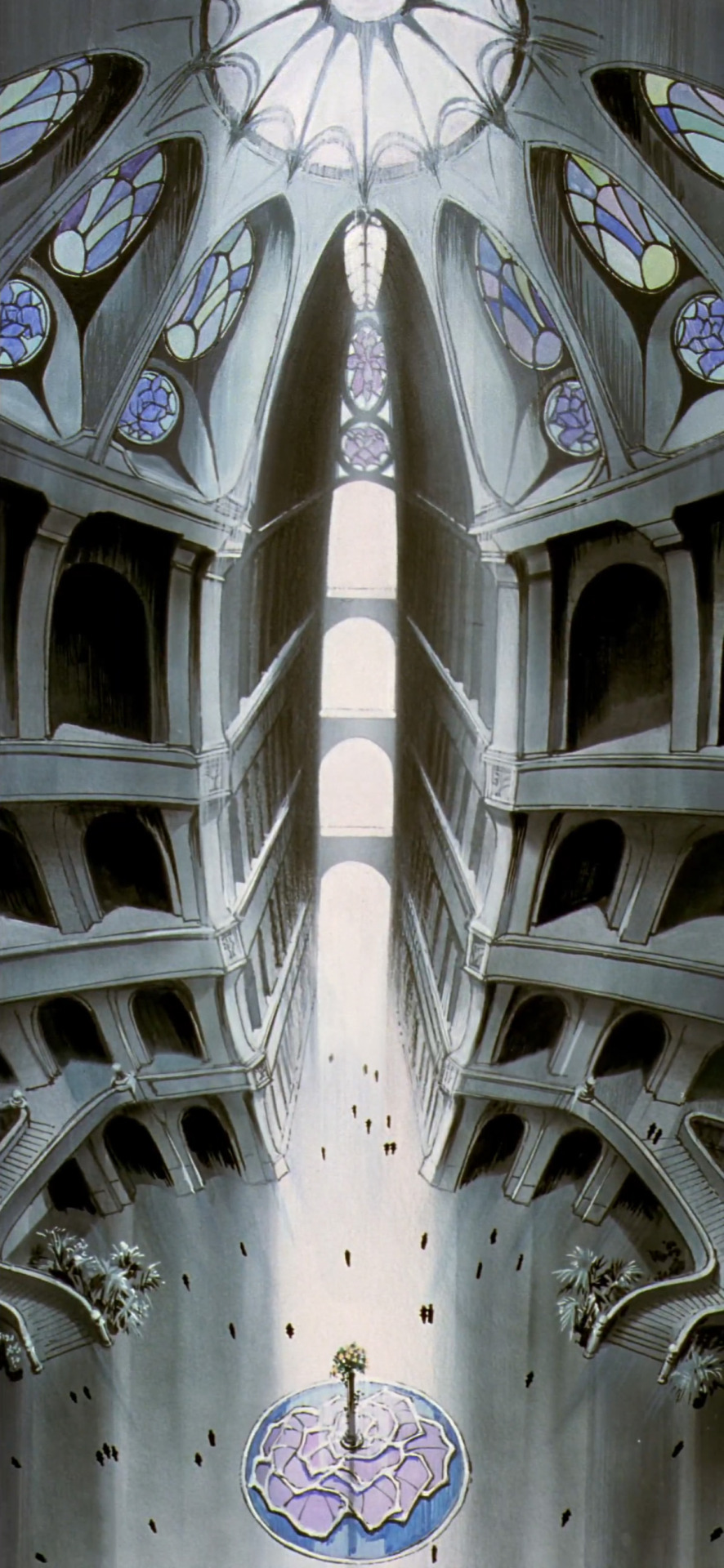

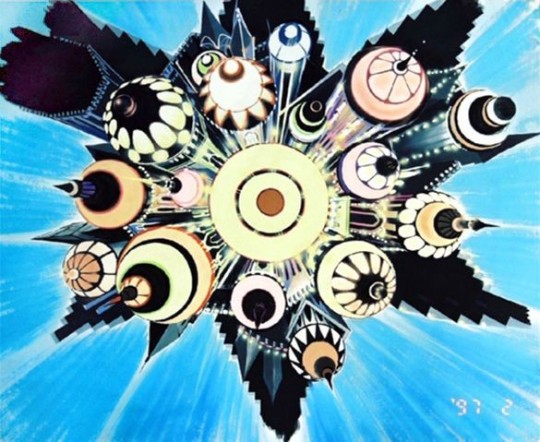
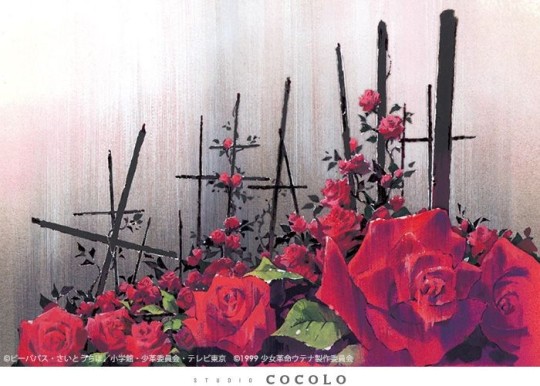
#revolutionary girl utena#shoujo kakumei utena#anthy himemiya#utena tenjou#akio ohtori#Prince dios#religious imagery#utena analysis#symbolism
102 notes
·
View notes
Text
Utena - Analysis on the opening
I don’t know if someone has already done it, but here’s my interpretation of the opening.
Warning: very, VERY long post and mention of scenes from the show, enough to be considered spoilers (sorry 😅)
Edit: I’ve made an analysis on the first ending as well

Let’s live heroically, let’s live with style. (Just a long, long time.)
The opening starts with our two main characters naked and in a fetal position, indicating their status of “newborn” in the story. Then, they are clad in the garbs of their respective roles. Interestingly, despite facing and leaning toward each other, their eyes remain close. In the case of Utena, it symbolizes her inability to see beyond her own narrative of the heroic prince saving the princess. As for Anthy, it’s her resignation to not see anything beyond her role of Rose Bride which she has played for decades/centuries, hence the long, long time.

Even if the two of us are torn apart… (Let go of me…)
…take my revolution.
In the next sequence, not only are they not looking at each other, but they are also back-to-back, another indication that they are positioned to be at odds with each other, whether they want to or not. Still, despite the obstacles thrown at them, despite Anthy’s attempts to make Utena give up on her (“Let go of me…”), the latter doesn’t stop telling her to take her hand (revolution) and that’s what she did.

In the sunlit garden, we both joined out hands.
Miki’s sunlit garden is an idealized memory, so it makes sense to compare Utena’s goal of becoming a prince to the former. Also, the tower, where her journey is supposed to end with her heteronormative “happily ever after”, is where she and Anthy join hands and the latter’s revolution begins.
The sequence where Utena walks with the male students has a “one of the boys” kind of vibe and that might have been the intent. The tomboy character may appear progressive by refusing to conform to traditionally feminine gender norms, but that’s instead a sexist concept because it implies that Utena’s gender, her femininity (and by association, anything branded as “girly”), is the one thing that makes her less than her fellow male schoolmates. Also, she looks over her shoulder, something or someone (Anthy?) catching her attention which stops her from blindly following the other boys’ lead.

Drawing close for comfort, we both swore…
In Anthy’s case, due to her hair and skin color, the vibe she emanates as she walks with her fellow female schoolmates is “not like other girls”, another trope which hurts women by marginalizing the few “different/special ones” from the “normal/average ones” or vice versa. However, the reason she turned around (Utena? Her perspicacity?) is what helps her preserve the part of her identity which is still deep within her. So being different isn’t a bad thing as long as every person, especially girls, are given the same courtesy.
If you read the Japanese lyrics, you would know chikai (from chikau, meaning “to swear/vow”) is at the beginning of Anthy’s sequence, when we see the gates of Ohtori, where she swears to find Utena again.
(Also, did you notice that their respective sequences begin with a shot of where their story in Ohtori ends?)
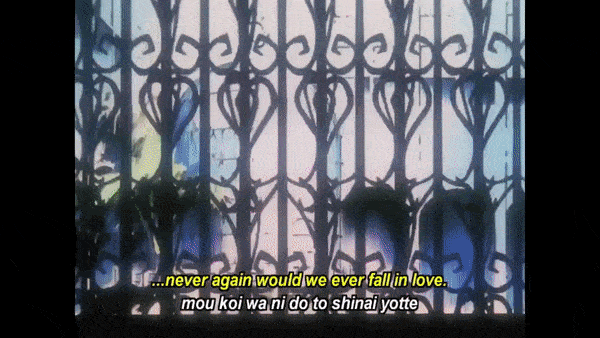
…never again would we ever fall in love. (Every time.)
This line is sung as our two protagonists stand face to face in Anthy’s cage-like greenhouse, where the cycle of the quest for revolution always (re)starts. That vow of never falling in love again, along with that Every time, makes me wonder about how many games had taken place before Utena. How many times had Anthy been engaged to a “chosen one”? How many of those “chosen ones” did she grow to love, yet still choose to betray? How many times did she swore to never love another again only to do so despite said promise to herself? Utena, by ending the cycle, makes the vow mentioned before much sweeter: she and Anthy choose to never fall in love again because they have pledged their love for each other till death do them part (like a married couple 🥰🤵🏻♀️👰🏾♀️🥰).

I see that photo of us standing cheek to cheek…
…and place a bit of my loneliness in our smiles. (Revolution!)
At this moment, the past represented by Utena and Anthy lying down, facing each other, and the future represented by the lyrics paralleled each other.
Past: a (naively) smiling Utena and a (falsely) smiling Anthy -> Anthy gives the white rose, the symbol of the Prince and by association, patriarchy, the source of her eternal pain, to Utena who is unaware of the dark history connected to it -> (failed) Revolution by dueling (transition to the dueling arena)
Future: the photo at the end of Episode 39 -> Anthy’s longing for Utena -> (successful) Revolution by leaving Akio

Even if I dream, even if I cry, even if I get hurt…
…reality keeps on coming recklessly.
This sequence is about the Duelists.
Utena being the one who dreams is self-explanatory.
Saionji, if you pause at the right time, is seen with tears in his eyes. Behind his arrogant attitude is nothing but a mentally weak and insecure boy who throws violent tantrums when things don’t go his way.
Juri is no doubt the one most hurt in the series, not only because of her gender, but also because of her sexual orientation (I’ve made a post about it).
Miki and Nanami being the ones hit by reality makes sense due to the knowledge they idealize the relationship they shared with their respective siblings when they were children.
But what about Touga? Maybe it’s the confidence that he could get the power to revolutionize the (his) world if he emulates the system which had hurt him only to realize that such way of doing things won’t get him closer to his goal. Or, since he’s the first antagonist of the show, giving us a taste of what Akio, another male character whose inside is the opposite of his princely front, could do to girls, maybe he represents the reality/truth of the (imperfect) world.
All these Duelists, these teenagers, fight each other for a purpose and that later turns out to be futile after they find out that the rules they play by are a cover for a much more sinister plot.

I wanna find my own place, the value of being…
The first half, we focus on Utena who raises her sword with a determined look as the blue sky turned golden and the dueling arena crumbled. Utena rejects the narrative Akio wants for her and in the process, breaks the world he has created (and kept Anthy in).
While we zoom in on Utena, symbolizing her will to move forward, it’s the opposite with Anthy. Expression blank, she put some distance between her and Utena/the viewer(s), letting herself (her true self) disappear with Akio’s self-made world.
This sequence foreshadows what will happen in Episode 38.

…the person I’ve been until now…
But as it is shown in Episode 39, Anthy didn’t disappear in the fall of Akio’s world and stood up against her brother (riding a horse), mirroring Utena.
Also, we see Dios opens his eyes as the dueling arena crumbles to dust.
In Episode 13, Akio is conversing with a “sealed” Dios who “glare[s] at” him for wanting to bring the Prince back into the world. Dios had been “sealed away” because playing Prince had been killing him. Anthy had become the world’s sole target of their hatred so that he would no longer carry that great burden on his shoulders ever again. Dios is angry at Akio for not only trying to turn her sacrifice into a fruitless endeavor, but for also taking part in her eternal torment by making her an accomplice in his scheme.
Akio has internalized the teachings of patriarchy. He now idealizes the Prince, forgetting that his current self isn’t the result of Anthy sealing the latter’s power away. He had, of his own volition, casted away his “nobility” and enjoyed the privileges of his gender. He was free of the duties expected from the Prince yet chose to not use that freedom to search for a way to save his sister without taking on that mantle again. Protected by a patriarchal system, Akio is in fact afraid of carrying the weight of the world on his shoulders again despite his desire to return to his “glory days”. He wants to be the Prince again (regression), but also doesn’t want to give up his life of privilege. There is no step toward self-improvement. And that’s why his quest for revolution is nothing but a pretext to play people like a fiddle, especially the vulnerable ones like children and women. I think he subconsciously knows he’s maintaining a perpetual cycle meant to end in failure, but he’s too lost in his self-centeredness to take a third option, to destroy the limits of his coffin. In other words, Akio must let patriarchy (manifested through the game and the dueling arena) disappear in order to regain the lost part of him that is Dios, because what the latter really wants is to live in a better world, one where Princes aren’t needed anymore.

Let’s find the strength to throw it all away.
Strip down to nothing all.
Utena having the strength to throw everything away references her decision to give up on the heteronormative “happy ending” given to her at the cost of Anthy’s well-being.
Anthy being stripped of everything references her true (naked) self within her coffin.
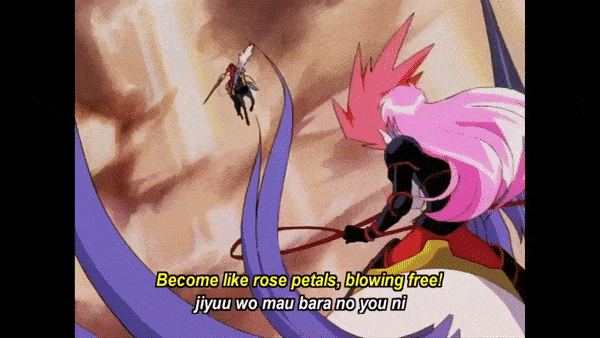
Become like rose petals, blowing free!
Honestly, that part was a bit difficult to interpret. We do see petals blown in the wind when Utena beats boys at basketball, but the only time I saw them concerning Anthy (and by association, the duels) was when the Duelist gets “deflowered”, and I didn’t get a feeling of freedom from it. Or so I thought at first. Knowing that the duels are part of Akio’s plot which is nothing but a wild goose chase, it makes sense in the context that losing means some time away from Akio’s control and thus, a chance to reflect and for self-improvement. Also, if the dueling arena is like a groomed flower, then its rubble is the petals. This might be foreshadowed in Episode 9, when Anthy falls with rose petals scattered everywhere as Utena tries to catch her.
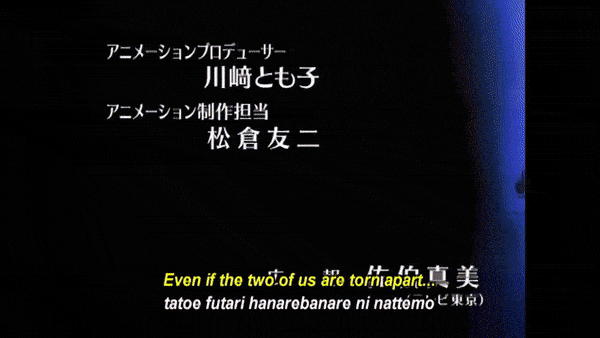
Even if the two of us are torn apart…
…I swear that I will change the world.
We have a return of Even if the two of us are torn apart… (Let go of me…) / …take my revolution. This time, there’s no request to let go of the other party and Utena is taking the next step toward (self-)improvement. If you pause at the right time, you can see she is not in a fetal position like at the beginning of the opening. Now, it looks like she is opening herself to the real world.
Anthy is not present, but that’s because she hasn’t reunited with Utena yet. Until that day comes, the latter will keep fighting for the world both deserve to live in.
In conclusion, the opening is a summary of the entire series and foreshadows how it would end.
#revolutionary girl utena#shoujo kakumei utena#rgu#sku#utena#utena tenjou#anthy himemiya#utena x anthy#anthy x utena#kyouichi saionji#juri arisugawa#miki kaoru#nanami kiryuu#touga kiryuu#prince dios#akio ohtori#revolutionary girl utena analysis#rgu analysis#revolutionary girl utena meta#rgu meta#rondo revolution#mine
117 notes
·
View notes
Text
to me, one of the moments in RGU that's always stood out to me that i feel is overlooked in how disgusting it was is when Akio cached Utena when she was falling. there's something so. gross about it to me like.
there's a million different ways to interpret the existence of Akio and Prince Dios, if they are separate people and should be seen as such or if they are just one and the same, but one of the great tragedies of the story is that Akio was at one point in his life a noble prince. at one point, Akio was a bastion of chivalry who was driven to ruin for his efforts: something something he became so evil because he was so good at one point.
and then in the last episode? he catches Utena while she falls. he picks up the pace just to catch her. and then Utena rips himself from his arms, and to me there's something so vicariously uncomfortable like. how dare you.
how dare you act like you're still some good person after all this? how fucking DARE you break her fall after she's already rejected everything you are? how FUCKING GODDAMN DARE YOU try to act like you still have chivalry and try to do the gentlemanly thing of trying to break a woman's fall after everything those fucking disgusting hands of yours have done?
like it's a minor scene but it still pisses me OFF. like. fuck off. i actually think just letting her fall would have been kinder. i really think her falling and hitting the hard floor would've been a million times better than that fucking monster trying to do what a gentleman should do after EVERYTHING he's done
#starposts#revolutionary girl utena#shojo kakumei utena#akio ohtori#prince dios#utena tenjou#rgu spoilers
96 notes
·
View notes
Text
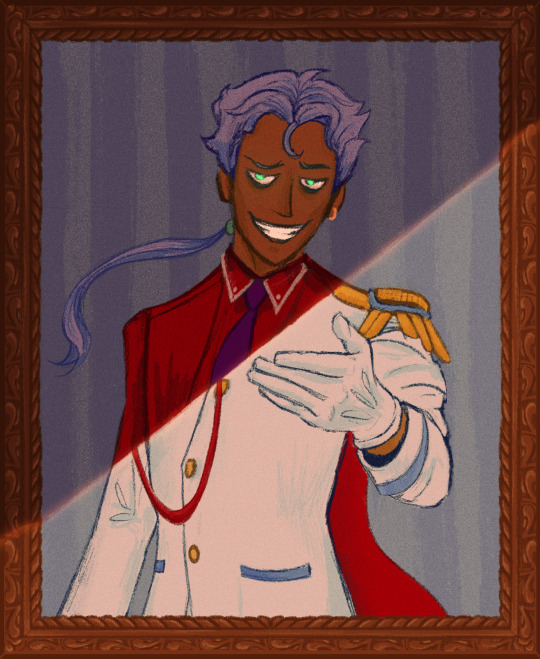
the shattered remains of a beautiful prince
#my art#rgu#revolutionary girl utena#prince dios#rgu akio#fanart#anime#this is a repost#art#artists on tumblr
186 notes
·
View notes
Text
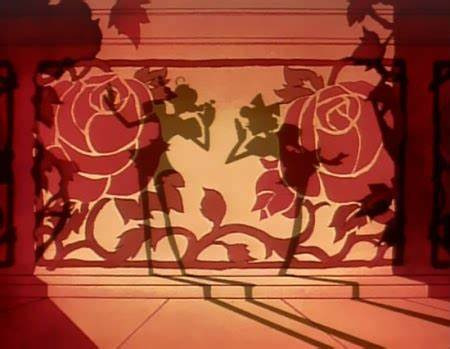

remember: you vote on which one you think is the best, not who is more morally correct or well written! It's about personal preference!
#look i know dios and akio are the same person but bear with me i had no other characters#to make pairs with#revolutionary girl utena#rgu#best utena character#best utena character tournament#shadow girls#dios#prince dios
47 notes
·
View notes